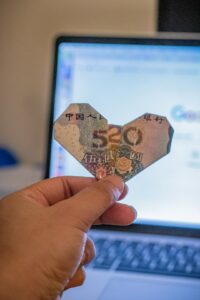What is Forex Trading and How Does it Work?
Forex trading, also known as foreign exchange trading, is the buying and selling of currencies on the foreign exchange market. It is the largest and most liquid financial market in the world, with an average daily trading volume of around $6 trillion.
Unlike other financial markets, such as the stock market, which has a centralized exchange, forex trading takes place over-the-counter (OTC). This means that transactions are conducted electronically between participants around the world, without a physical exchange.
The forex market operates 24 hours a day, five days a week, allowing traders to participate in the market at any time. This is possible because the market is decentralized, with trading taking place across various financial centers globally, including London, New York, Tokyo, and Sydney.
So, how does forex trading work?
At its core, forex trading involves speculating on the price movements of one currency against another. Traders aim to profit from fluctuations in exchange rates by buying a currency when it is expected to appreciate and selling it when it is expected to depreciate.
Currency pairs are the primary instruments in forex trading. They represent the value of one currency relative to another. For example, the EUR/USD pair represents the exchange rate between the Euro and the US Dollar. The first currency in the pair is known as the base currency, while the second currency is the quote currency.
When trading forex, a trader will take a position on a currency pair, either going long (buying) or going short (selling). If a trader believes that the value of the base currency will rise against the quote currency, they will go long. Conversely, if they expect the base currency to fall in value, they will go short.
To open a trade, traders use a forex broker, which provides them with access to the market. Brokers offer trading platforms that allow traders to execute trades, access real-time price quotes, and monitor their positions.
Forex trading involves the use of leverage, which allows traders to control larger positions with a smaller amount of capital. For example, a leverage ratio of 1:100 means that for every $1 in the trader’s account, they can control $100 in the market. While leverage amplifies potential profits, it also magnifies potential losses, so it should be used with caution.
The forex market is influenced by a wide range of factors, including economic indicators, geopolitical events, central bank policies, and market sentiment. Traders analyze these factors and use various strategies to make informed trading decisions.
Technical analysis is a commonly used approach in forex trading. It involves studying historical price charts and patterns to identify trends and potential entry and exit points. Traders use indicators and tools, such as moving averages, trend lines, and oscillators, to analyze price data and make predictions about future price movements.
Fundamental analysis is another important aspect of forex trading. It involves analyzing economic data, news releases, and other factors that can impact a currency’s value. Traders assess factors such as interest rates, inflation, employment data, and political developments to determine the overall health and outlook for a currency.
Risk management is crucial in forex trading. Traders use various techniques, such as setting stop-loss orders and take-profit orders, to limit potential losses and protect profits. Additionally, diversifying a trading portfolio across different currency pairs can help mitigate risk.
In conclusion, forex trading is the buying and selling of currencies on the foreign exchange market. It is a decentralized market that operates 24 hours a day, allowing traders to speculate on the price movements of currency pairs. Forex trading involves the use of leverage, technical and fundamental analysis, and risk management strategies. It is a dynamic market that offers opportunities for profit, but also carries risks. With proper education, practice, and an understanding of the market, individuals can participate in forex trading and potentially achieve financial success.






